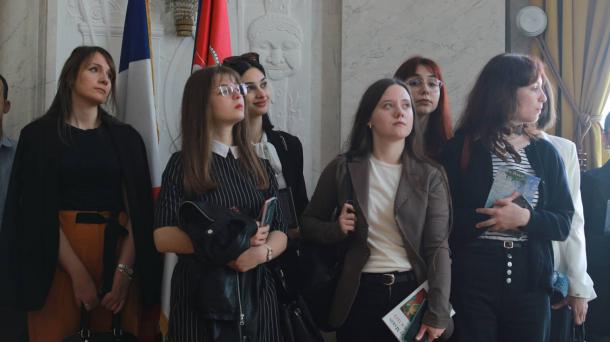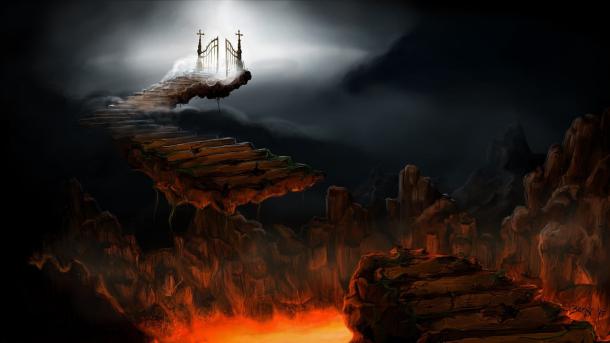THE WRITER AND THE CRITIC: The State of Literature in the 21st Century
0%
THE WRITER AND THE CRITIC
The State of Literature in the 21st Century
It has, as it seems to me, come a time in the 21st century where the only proper foot forward is through a way of reform. A well needed reform which is yet to come, and who knows when one such reform will happen, but, as it seems to me, clearly, it will happen, and upon its beginning, which will be noticed, and which will not be subtle, I shall rejoice in having stated that its arrival was well needed, and furthermore, unavoidable. The reform in question will be one of a literary, and perhaps more importantly, of a cultural significance to society because it will propose, as I do now, a complete and utter shift of course, a rebellion of the current state, which is a natural proposition given the historical nature of every succeeding movement, or period when compared to the former. I shan’t dare to specify without certainty of claim the full nature of the reform, but from what I can tell as of now it will have a positive effect on the state of what we today call ‘free speech’, because a more negative effect is impossible to be caused by any such movement, reform, or event.
The position of free speech is atrociously, undeniably unfavorable in the 21st century, making for a tough job on the behalf of the writer and the critic, as well as for all of the observers of the pair. Too much emotion is charged through the vocalized word that one cannot but hold breath at the risk of suffocation instead of reliеving oneself of the breath taken and the inevitable words that had been created in the mind of the one that is now suffocating. Without going into much unneeded detail as to the reasons why our time is a time which seems to be suffocating all of us unlucky individuals that are born within its duration, as many individuals, my senior and peer may indubitably attest to, it is perhaps as unfavorable a time to be a writer as has ever existed. Of course, not all that inauspiciousness has to do with free speech. Alas, had that been the least of our worries we might have been out of the supposed reform long ago, or writers before me perhaps would have started it already, or better yet, it might not have been needed in the first place. However, that is simply not the case, and here we are ushering in a cry for help to all writers and all critics to come forth, reinstate their position in society and subsequently help in changing society by entering a new era of creative thought.
I would not wish to turn the majority of the readers of this essay off here with my lackluster naming of the reasons for such a big change, and I would not wish to alarm anyone with its prognostication. I feel that it is my professional obligation, as it is up to other 21st century writers to illustrate a need for this change through their writing, and perhaps in the future someone more daring than I shall elaborate further on why this reform has come to manifest itself in the first half of the 21st century. I am merely stating its need, and suggesting that everyone be ready for its arrival seeing as the times and the people in these times are as soft and as sensitive as they are. I feel like a proper warning is welcomed so that major consequences may be avoided and individual feelings may be spared. The reader of the distant future reading this may think that this type of warning is unnecessary and a peculiarity to be included in such an enigma of an essay, but for those readers that are reading this long after the distribution of this essay I offer the following objection: Indeed, children, I live in a time where even books find a way to offend people; Where everybody has a voice, but nobody bothers to truly hear. Where everyone is an addict for attention, but simultaneously harbor short attention spans.
The Postmodern Period has lasted far too long. We in the 21st century cannot keep up with the essence of the ones that came before us. There has been far too much diversity in literature since the turn of the century and far too much influence on the part of how literature is perceived due to social media, marketing and simply the entire ‘business of writing’, which as every true writer knows is the demise of the sincerity and pureness of literature. Simply put, the business of writing cannot coexist with great writing, because they represent two opposites. Only a writer who is more intact to the literary tradition can prevail, and will prevail in a world of writing for profits, that much is easily deducible.
It is, furthermore, unfair to continue under the banner of Postmodernism in the 21st century. It goes against tradition, and is hypocritical to group so many writers into the same bunch, when we all stand on very dissimilar, incomparable steps on the chronological staircase of literature. One must not put Toni Morrison, Vladimir Nabokov, and Kurt Vonnegut on the same stepping stone with any writer that produced in the 21st century, it would be unwise. Just the same as Allen Ginsberg may not be placed next to a particularly cynical poet of the 21st century, or Eugene O’Neill next to a 21st century playwright. It simply does not stand.
We, the writers of the 21st century, need our own identity, and our own period. And what a period that will be I cannot dare to imagine. With all the variety of writing, it is impossible to fathom what kind of literary period could encapsulate all that is to fit inside it. So much theme and thematic! How does one go about defining all of what is about to happen on the scene of literature? Some writers write about dragons and fairies, others about space and robots. Some write in the current and others in the past (Do note that what I mean by ‘in the current’ does not mean the same as ‘about the current’, for that is a very significant distinction and one that will help distinguish all of these different themes, for one can write about the current, but in the past, or future, and others may write in the current, but not about the current). I will not even venture as far as to suggest a name for the yet-to-be-defined literary period that will involve my peers and myself, even though I am, once again, stating its need, but what I will say is that it will have to be wide enough to fit all manner of distinct writer that may not seem to have anything in common, and yet narrow enough so that it seems like all of these different writers could be linked together in an almost obscure manner. The picture which would illustrate this notion should be a tailor trying to fit a single thread through the microscopic hole of a thousand needles, where the thread seems to be the most unimportant part of the assemblage, but is, in fact, the universal, the similar, that holds the needles together. This is a difficult task that we ask of writing, but it is the task that the writer and the critic will need to solve by way of proper conduct and devotion to the process of writing.
I will add that many iterations of the idea of a reform will exist, have existed, and probably do exist as of now. I wish not to comment on the existing iterations which I consider inadequate to the true purpose of 21st century writing. These unformed ideas do not simply warn of a reform as does my own essay, but clearly state the existence of a reform which does not precisely border literary periods, does not go into detail, or goes into far too many details, as to why, or how it came into existence, but simply groups a handful of 20th century and 21st century writers based on some aspects of their writing that merely share a resemblance. This type of grouping of writers is problematic. Applying the same logic one could also claim that Mikhail Bulgakov and J.W. von Goethe practically wrote the same novel. It is simply not that clear-cut, and despite my irony on the subject, I cannot see anyone giving a classification of a literary period that is yet to define itself. One can only talk of the consequences of a war once it has ended. Similarly, we will only be able to know the boundary of the literary present once it has transitioned into the next, and the one before simply ceases to fit the description, as is the situation right now in the third decade of the 21st century.
Коментари
Филозофски факултет у Нишу задржава право избора коментара који ће бити објављени, као и право скраћивања коментара.
Коментаре који садрже говор мржње, псовке и увреде, као и било који други вид непримерених или коментара који се директно не односе на чланак који коментаришете, не објављујемо.
Задржавамо право да коментаре којима скрећете пажњу на словне грешке, техничке и друге пропусте, као и коментаре који се односе на уређивачку политику не објавимо, али такви коментари су доступни за увид администраторима и уредницима, и на њима се захваљујемо.
ЗАКОН О ЈАВНОМ ИНФОРМИСАЊУ, члан 38: Забрањено је објављивање идеја, информација и мишљења којима се подстиче дискриминација, мржња или насиље против лица или групе лица због њиховог припадања или неприпадања некој раси, вери, нацији, етничкој групи, полу или због њихове сексуалне опредељености, без обзира на то да ли је објављивањем учињено кривично дело.
Мишљења изнесена у објављеним коментарима представљају приватне ставове њихових аутора и не представљају званичне ставове Филозофског факултета у Нишу ни аутора чланка.
Слањем коментара потврђујете да сте сагласни са правилима коришћења.






